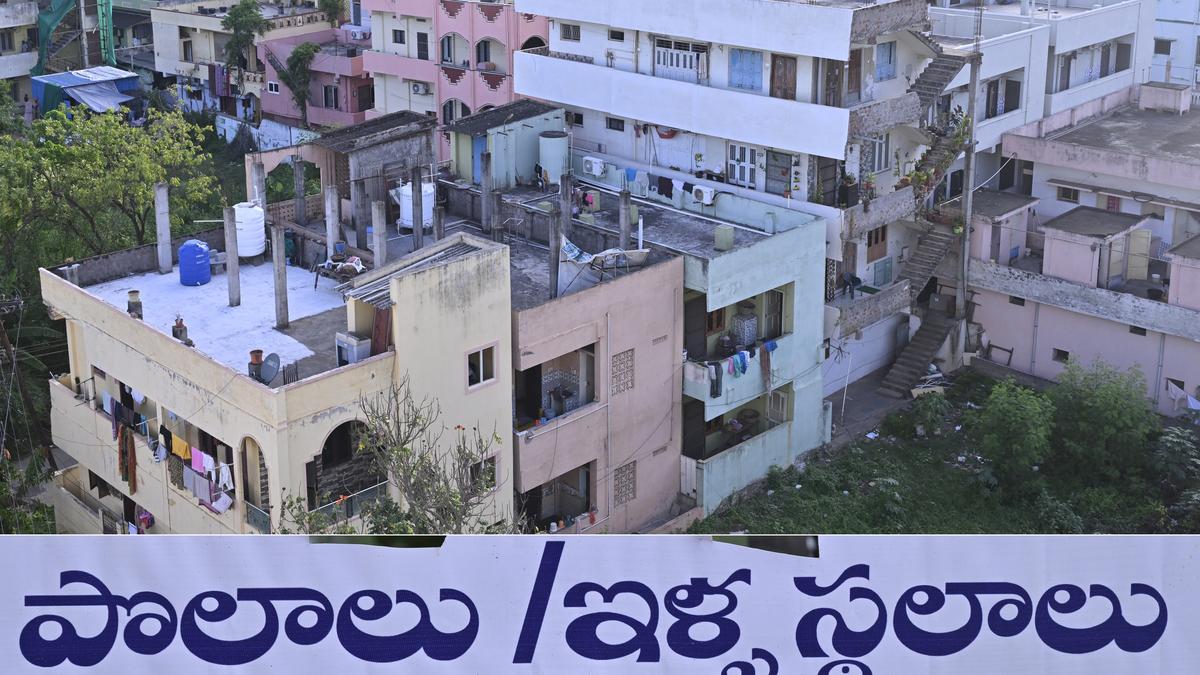
Things looking up for real estate sector in and around Vijayawada, say experts
The Hindu
The Telugu Desam Party (TDP) winning the 2024 Assembly elections and the focus being shifted to Amaravati has given a ray of hope to real estate agents, who are expecting an increased construction business in the Vijayawada-Guntur region and also rotation of money in the market
The Telugu Desam Party (TDP) winning the 2024 Assembly elections and the focus being shifted to Amaravati has given a ray of hope to real estate agents, who are expecting an increased construction business in the Vijayawada-Guntur region and also rotation of money in the market.
In the last five years, construction activity had come to a naught in and around Vijayawada and also other parts of the State because of the confusion surrounding the capital and also the sand policy introduced by the outgoing YSRCP government, said builders and experts in the real estate sector.
“Things are looking up for us. We are expecting the real estate activity in the Vijayawada-Guntur-Amaravati region to pick up pace after a lull. Rise in land and rental prices can be expected, but it will not happen overnight. Apart from this region, Visakhapatnam is also going to see some activity as it is one of the growth centres. The entirel State will benefit from it since there is going to be a spiral effect,” said Sandeep Mandava, Central Zone president of the National Real Estate Development Council (NAREDCO) and CEO of Malaxmi Infra Ventures Pvt. Ltd.
It all depends on how fast developmental plans are taken up in Amaravati, said Maturi Ranganath, a member of the Confederation of Real Estate Developers’ Associations of India (CREDAI). “We will wait for the new government to settle down and have a look at their policies. There will be permissions to be got, new water and power connection lines to be laid in Amaravati. It is a long process. It will be then that there will be a demand for permanent residences between Vijayawada and Mangalagiri,” said Mr. Ranganath, also CMD of Amma Constructions.
While people in Vijayawada may anticipate ballooning of rental and land prices, some experts said the city would not be much affected by the works being taken up in the capital region.
While according to some agents it may see a slight rise in rental and land prices, some others felt the rates would actually be reasonable since the activity would be around Tadepalli, Mangalagiri and Amaravati regions.

“Writing, in general, is a very solitary process,” says Yauvanika Chopra, Associate Director at The New India Foundation (NIF), which, earlier this year, announced the 12th edition of its NIF Book Fellowships for research and scholarship about Indian history after Independence. While authors, in general, are built for it, it can still get very lonely, says Chopra, pointing out that the fellowship’s community support is as valuable as the monetary benefits it offers. “There is a solid community of NIF fellows, trustees, language experts, jury members, all of whom are incredibly competent,” she says. “They really help make authors feel supported from manuscript to publication, so you never feel like you’re struggling through isolation.”

Several principals of government and private schools in Delhi on Tuesday said the Directorate of Education (DoE) circular from a day earlier, directing schools to conduct classes in ‘hybrid’ mode, had caused confusion regarding day-to-day operations as they did not know how many students would return to school from Wednesday and how would teachers instruct in two modes — online and in person — at once. The DoE circular on Monday had also stated that the option to “exercise online mode of education, wherever available, shall vest with the students and their guardians”. Several schoolteachers also expressed confusion regarding the DoE order. A government schoolteacher said he was unsure of how to cope with the resumption of physical classes, given that the order directing government offices to ensure that 50% of the employees work from home is still in place. On Monday, the Commission for Air Quality Management in the National Capital Region and Adjoining Areas (CAQM) had, on the orders of the Supreme Court, directed schools in Delhi-NCR to shift classes to the hybrid mode, following which the DoE had issued the circular. The court had urged the Centre’s pollution watchdog to consider restarting physical classes due to many students missing out on the mid-day meals and lacking the necessary means to attend classes online. The CAQM had, on November 20, asked schools in Delhi-NCR to shift to the online mode of teaching.









